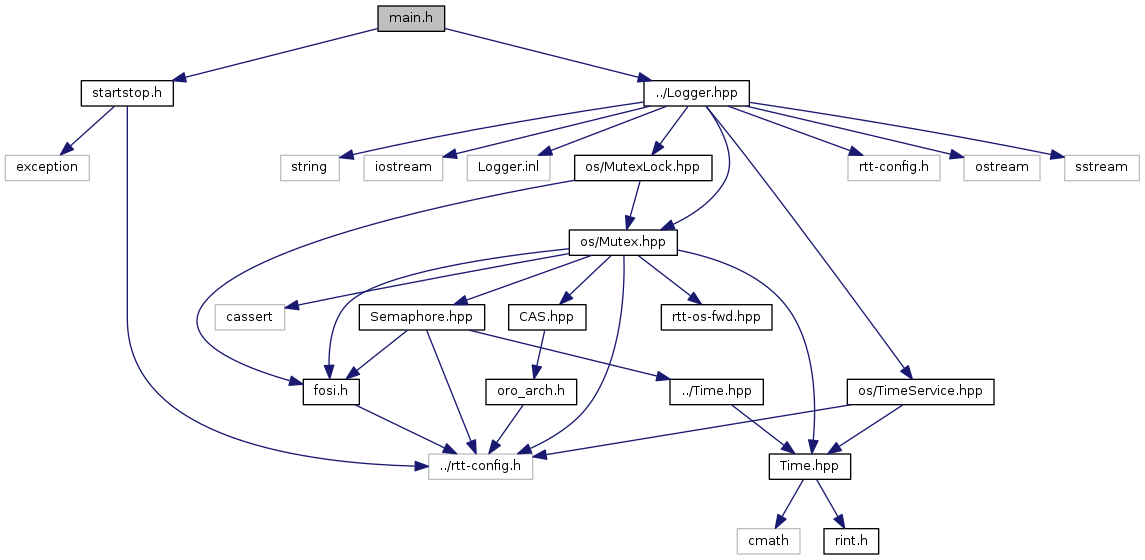int ORO_main_impl(int, char **)
Include dependency graph for main.h:

This graph shows which files directly or indirectly include this file:

Go to the source code of this file.
Macros | |
| #define | ORO_main |
Functions | |
| int | ORO_main_impl (int, char **) |
Detailed Description
The prototype of the application's ORO_main
Definition in file main.h.
Macro Definition Documentation
| #define ORO_main |
Value:
int res = -1; \
std::string location(argv[0]); location += "::main()"; \
__os_init(argc, argv); { \
RTT::Logger::In in(location.c_str()); \
if ( __os_checkException(argc,argv) ) { \
try { \
res = ORO_main_impl(argc, argv); \
} catch( std::exception& arg ) \
{ \
__os_printException(argv[0], arg); \
} catch( ... ) \
{ \
__os_printFailure(argv[0]); \
} \
} else { \
res = ORO_main_impl(argc, argv); \
} \
} __os_exit(); \
return res; \
} \
int ORO_main_impl
void __os_printException(const char *prog, std::exception &arg)
Definition: startstop.cpp:139
Declare the function 'int ORO_main(int argc, char **argv)' instead of 'int main(int argc, char **argv)' such that the Real-Time Toolkit can setup the OS environment, prior to executing user code. Using ORO_main is optional, but in some RTOS'es, you'll be required to call __os_init() and __os_exit() instead when not using ORO_main.
- See also
- __os_init(), __os_exit()
Function Documentation
| int ORO_main_impl | ( | int | , |
| char ** | |||
| ) |
Forward declare this wrapper around the user code.
- See also
- ORO_main